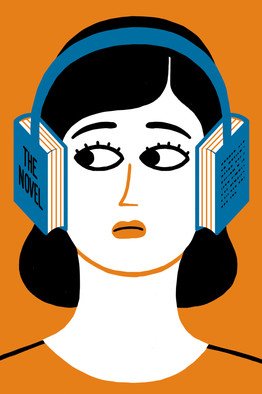 I have been wondering how difficult it would be for journals to permit authors to make an audio recording of their papers and allow that to be posted along with the written version. This would increase the accessibility of current philosophy. And I don’t know about you but I get sick of staring at my computer all day and would love to listen to a (well-read) paper sometimes while walking my dog (pictured). Anyway, interested to hear what the barriers would be to this sort of thing being an option for authors.
I have been wondering how difficult it would be for journals to permit authors to make an audio recording of their papers and allow that to be posted along with the written version. This would increase the accessibility of current philosophy. And I don’t know about you but I get sick of staring at my computer all day and would love to listen to a (well-read) paper sometimes while walking my dog (pictured). Anyway, interested to hear what the barriers would be to this sort of thing being an option for authors.
A Question for Journals: How Hard Would it be to allow Audio Recordings of Philosophy Papers


There are Apps for this! But I agree that the author reading would be ideal, and a great help too many.
There are those that would say “Noooooooo!!! Philosophers are the most boring readers on the planet.”
To them I say: As is people read their papers to a captive audience. In the glorious future I imagine the audience gets to choose who will read a paper to them, thus providing a serious incentive to readers to do a better job of it.
Authors could also put recordings of their papers on their personal websites. They don’t need to wait for journals to do it. Though I would think that they’d get more listens/downloads if it were on the journal’s website and this would incentivize more people to record their own papers.
Maybe this is something that could be added to PhilPapers rather than the journal site itself. Then just one website would have to implement this rather than every single journal website. Plus, the program could be the same across the board, whereas I’d imagine the choices individual journals make would vary. But I don’t know whether laws about copyright would allow this to be done.
Terrific idea Travis! I’ll ask the philpapers people about this.
The copyright issue could be significant for all I know. Perhaps things might start with the open access journals–providing them a welcome boost.
I use text-to-speech listening while walking dogs, doing dishes, etc. Here’s my tips/experience:
-The electronic voice may be difficult to process at first, but you get used to it. Still, human voices are best.
-It’s worth it to buy one of the better voices (I use Ivona’s Ivy–$45).
-On average, listening gives about 66% the comprehension of reading. With easier-to-process content (e.g., a Peter Singer popular book) you approach comprehension parity. With tougher-to-process content (e.g., Kant), comprehension % drops. (When you read, your speed varies line-by-line per the processing difficulty. If listening to an exported MP3, you have to choose a constant rate when you export. If listening through an app, you can change the speed manually, but if say, doing dishes, that’s only practical if the changes in processing difficulty are per large sections.)
-Efficient uses include: giving a pre-read listen to high-priority stuff, listening to popular books in subjects you want to bone up on (i.e., the easier stuff is still useful–e.g., Daniel Kahneman’s popular book–lots of this stuff is on Audible, which is ideal, but not free).
-If listening to journal articles, you can copy and paste into text-to-speech (Chrome is best for this). You may need an intermediate step of pasting into Word to adjust the formatting–e.g., to avoid a pause at the end of every line-break: Find/Replace, Find_what: More/Special/Paragraph_break (i.e., ^p), Replace_with: More/Special/Non-breaking_space (i.e., ^s), Replace_All.
-If want to listen to books, you usually can’t select_all/copy from Kindle, etc. (though there’s probably a less-than-legal way to do it), and would need a pdf version. To listen to a paper-copy of a book, you need to tear off the binding, maybe trim off the edge that is ripped out/has binding glue, scan it (only practical if have a scanner with a document feeder), and run it through text-recognition to get digital text, before you can send it to text-to-speech. Digitizing books has lots of other advantages (e.g., run a word search on a folder with all your books).
This is such a good idea! And for the journals it surely will just provide greater exposure for their output. The New Yorker, for instance, has a free podcast where people read the stories they publish in the magazine. Sure, philosophers won’t be as good readers as authors, but they just have to start getting better at it.
I’m profoundly dyslexic and need to have my computer read allowed most philosophy to me (for those interested, my recommended software is voice-dream on IOS). If author recorded versions of papers became a norm, it would be incredibly helpful.
The benefits to human read papers would go well beyond added inflection, the avoidance of a mechanical voice (which you do get used to), and saving me time spent converting papers.
First (and by far most significantly), humans could handle footnotes more effectively. A human will skip some footnotes (like footnotes that are functionally parenthetical citations) and read others. Further, a human will read the footnote after the section that is relevant, and with a verbal marker (such as ‘as an aside’) rather than in the middle of whatever paragraph finishes the page.
Second, authors can handle symbols, abbreviations, Greek characters, foreign languages, and other non-standard marking that are really confusing to digital readers.
Third, authors can clarify structural elements of a paper much more effectively than a voice reader. For instance, an author will use pauses to mark the ending of a block quotation, while a computer will not distinguish ordinary paragraph breaks from block quotations.
There are a number of other benefits, but these should give a sense of how helpful it would be.
Thanks anonymous! I’ll keep my fingers crossed that this is something that could be done. Let me know if I could help in any way.
David, yes, it could be significant for all I know too. Most journals do let you post a penultimate draft of your work online. I would be surprised if you were allowed to post the text of your penultimate draft online, but not an audio version of that same text. But I don’t know anything about the copyright law, so I could very well be wrong.
Good news: You can already listen to papers using text-to-speech software (that is standard on most computers, tablets, and smartphones). Here’s a post explaining how to do it: https://byrdnick.com/Series/text-to-speech
Also, the easiest way (for journals) to do this (via text-to-speech), would be to publish a version of the paper in a flexible format (so that notes, headers, and footers, etc. can be ignored) such as .epub.
Recording decent audio of people reading papers would be far more difficult.
The answer turns out to be, at least for open access journals, not very hard at all:
https://www.jesp.org/index.php/jesp/article/view/517?fbclid=IwAR0x33iq27LMOTWXlaVqK6hR_L-nk75u9JALsyvXwDdTe0mNNLUpybfLyAA